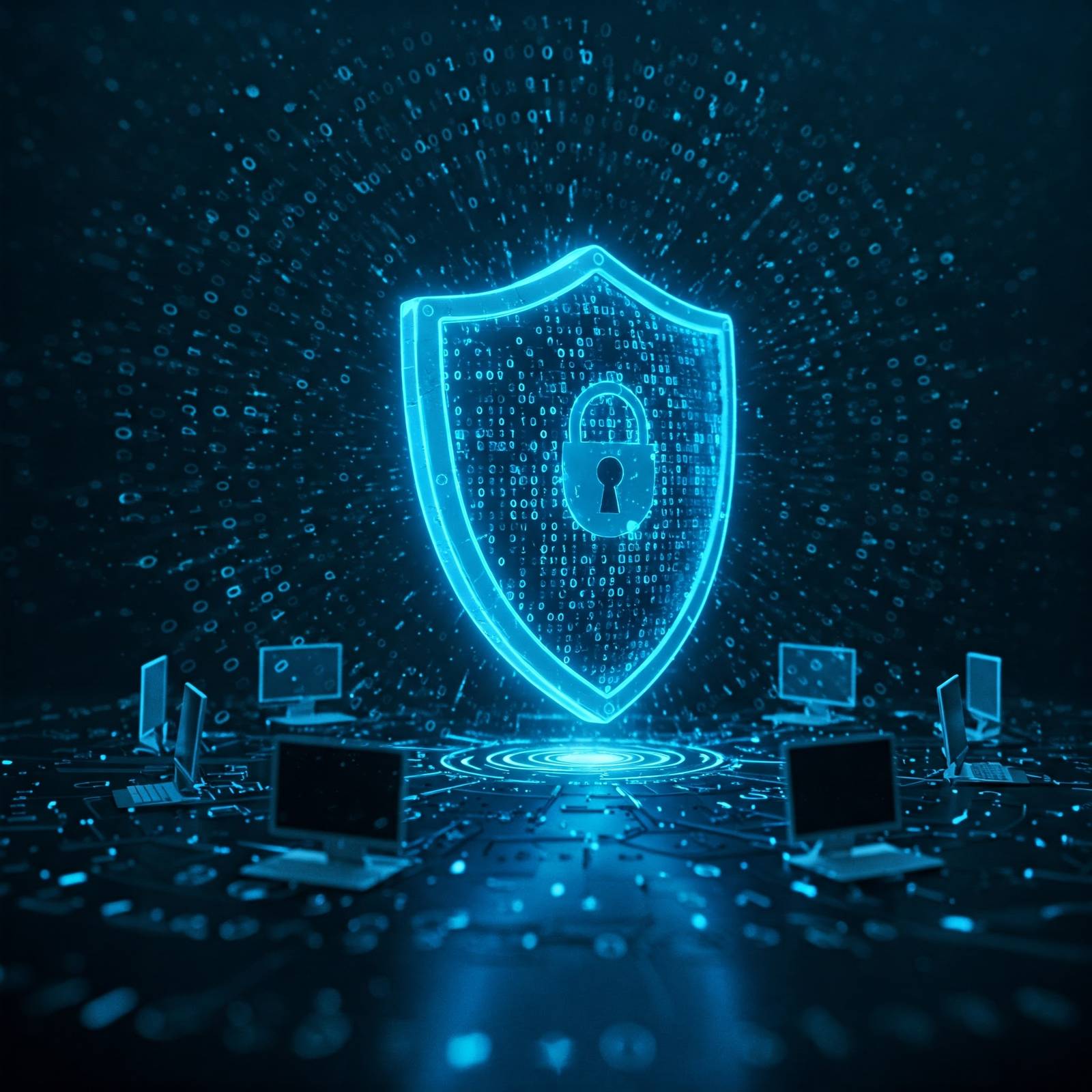What is Ethical Hacking? The 2025 Guide to Cybersecurity and Beyond

What is Ethical Hacking? A Comprehensive Guide to Learning and Career Opportunities
In today’s digital age, cybersecurity has become a critical concern for businesses, governments, and individuals alike. With cyber threats on the rise, the demand for skilled professionals who can protect systems and data has skyrocketed. One such in-demand skill is ethical hacking. But what is ethical hacking, and why is it so important? In this blog, we’ll dive deep into the world of ethical hacking, its significance, and how you can learn and build a career in this exciting field.
What is Ethical Hacking?
Ethical hacking, also known as penetration testing or white-hat hacking, is the practice of intentionally probing computer systems, networks, and applications to identify vulnerabilities and weaknesses. Unlike malicious hackers (black-hat hackers), ethical hackers operate with permission and aim to improve security by fixing these vulnerabilities before they can be exploited.
When asking “what is ethical hacking?”, it’s important to understand that ethical hackers use the same tools and techniques as malicious hackers but with a noble purpose: to protect and secure digital assets. They play a crucial role in preventing data breaches, financial losses, and reputational damage for organizations.
Why is Ethical Hacking Important?
- Preventing Cyberattacks: Ethical hackers help organizations identify and fix security flaws before they can be exploited by cybercriminals.
- Protecting Sensitive Data: By securing systems, ethical hackers ensure that sensitive information, such as customer data and intellectual property, remains safe.
- Compliance with Regulations: Many industries require regular security assessments to comply with regulations like GDPR, HIPAA, and PCI-DSS. Ethical hacking helps organizations meet these requirements.
- Building Trust: A secure system builds trust with customers, partners, and stakeholders, enhancing an organization’s reputation.
Understanding what is ethical hacking and its importance is the first step toward appreciating its role in modern cybersecurity.
Types of Ethical Hacking
Ethical hacking encompasses various domains, each focusing on different aspects of cybersecurity:
- Network Hacking: Identifying vulnerabilities in network infrastructure, such as routers, firewalls, and servers.
- Web Application Hacking: Testing web applications for flaws like SQL injection, cross-site scripting (XSS), and insecure authentication.
- Wireless Network Hacking: Securing wireless networks against unauthorized access and attacks.
- Social Engineering: Testing human vulnerabilities, such as phishing attacks, to improve employee awareness.
- System Hacking: Gaining access to computer systems to identify weaknesses in passwords, encryption, and permissions.
Each type of ethical hacking plays a unique role in securing systems and data.
Skills Required to Become an Ethical Hacker
To excel in ethical hacking, you need a combination of technical and soft skills:
Technical Skills
- Proficiency in programming languages like Python, JavaScript, and C++.
- Knowledge of operating systems, especially Linux and Windows.
- Understanding of networking protocols and tools like Wireshark and Nmap.
- Familiarity with cybersecurity tools like Metasploit, Burp Suite, and Nessus.
Soft Skills
- Problem-solving and analytical thinking.
- Attention to detail.
- Strong communication skills to explain vulnerabilities and solutions to non-technical stakeholders.
- A strong sense of ethics and responsibility.
How to Learn Ethical Hacking
If you’re interested in pursuing a career in ethical hacking, here’s a step-by-step guide to get started:
- Learn the Basics of Cybersecurity: Understand fundamental concepts like encryption, firewalls, and malware.
- Enroll in a Certified Ethical Hacker (CEH) Course: Cambridge Infotech offers comprehensive courses that cover all aspects of ethical hacking, from basics to advanced techniques.
- Practice in a Lab Environment: Hands-on experience is crucial. Use virtual labs like Hack The Box or TryHackMe to practice hacking techniques in a safe and controlled environment.
- Earn Certifications: Certifications like CEH, CompTIA Security+, and OSCP can boost your credibility and job prospects.
- Stay Updated: Cybersecurity is a rapidly evolving field. Follow industry blogs like Krebs on Security and attend webinars to stay informed about the latest threats and trends.
Career Opportunities in Ethical Hacking
Ethical hacking offers a wide range of career opportunities, including:
- Penetration Tester: Conducting security assessments and identifying vulnerabilities.
- Security Analyst: Monitoring and analyzing security systems for potential threats.
- Cybersecurity Consultant: Advising organizations on how to improve their security posture.
- Chief Information Security Officer (CISO): Overseeing an organization’s entire cybersecurity strategy.
According to recent reports, the demand for ethical hackers is expected to grow by 33% over the next decade, making it one of the most lucrative and future-proof careers in IT.
FAQs
About Ethical Hacking
Is ethical hacking legal?
Yes, ethical hacking is legal as long as it is performed with the explicit permission of the system owner.
What is the difference between ethical hacking and hacking?
Ethical hacking is performed to improve security, while hacking is often done with malicious intent. Ethical hackers operate within legal boundaries, whereas hackers may engage in illegal activities.
Can I learn ethical hacking without a technical background?
While a technical background is helpful, it’s not mandatory. With dedication and the right training, anyone can learn ethical hacking.
How long does it take to become an ethical hacker?
The time required depends on your prior knowledge and the intensity of your training. On average, it takes 6-12 months to gain the necessary skills and certifications.
What is the salary of an ethical hacker?
The average salary of an ethical hacker ranges from 70,000to120,000 per year, depending on experience, location, and certifications.
People Also Ask
What is ethical hacking in simple words?
Ethical hacking is the practice of testing computer systems, networks, and applications to find and fix security vulnerabilities, ensuring they are safe from cyberattacks.
What is the ethic of hacking?
The ethic of hacking revolves around using hacking skills for good, such as improving security, protecting data, and helping organizations defend against cyber threats.
Is ethical hacking illegal?
No, ethical hacking is legal when performed with proper authorization from the system owner.
Who is India’s No. 1 ethical hacker?
Ankit Fadia is one of India’s most well-known ethical hackers and cybersecurity experts.
People Also Search For
- What is ethical hacking in cyber security?
Ethical hacking in cybersecurity refers to the practice of identifying and fixing vulnerabilities in systems to prevent unauthorized access and cyberattacks. - Types of ethical hacking
Ethical hacking includes network hacking, web application hacking, wireless network hacking, social engineering, and system hacking. - Importance of ethical hacking
Ethical hacking is crucial for preventing cyberattacks, protecting sensitive data, ensuring regulatory compliance, and building trust with stakeholders. - What is unethical hacking?
Unethical hacking, or black-hat hacking, involves illegally accessing systems to steal data, cause harm, or exploit vulnerabilities for personal gain - What is Ethical Hacking in Hindi?
Ethical hacking in Hindi is known as “नैतिक हैकिंग,” which refers to the practice of legally hacking systems to improve their security.
- 7 steps of ethical hacking
The 7 steps of ethical hacking are reconnaissance, scanning, gaining access, maintaining access, covering tracks, analysis, and reporting. - Ethical hacking salary
The salary of an ethical hacker ranges from 70,000to120,000 per year, depending on experience, location, and certifications. - Phases of ethical hacking
The phases of ethical hacking include planning, reconnaissance, scanning, exploitation, post-exploitation, and reporting.
Why Choose Cambridge Infotech for Ethical Hacking Courses?
At Cambridge Infotech, we offer industry-leading ethical hacking courses designed to equip you with the skills and knowledge needed to excel in this field. Our courses include:
- Hands-on training with real-world scenarios.
- Guidance from experienced cybersecurity professionals.
- Preparation for globally recognized certifications like CEH and OSCP.
- Placement assistance to help you kickstart your career.
Whether you’re a beginner or an experienced IT professional, our courses are tailored to meet your needs and help you achieve your career goals.
Conclusion
Ethical hacking is a rewarding and impactful career that plays a vital role in safeguarding our digital world. By understanding what is ethical hacking and acquiring the necessary skills, you can become a part of this growing field and make a difference.
If you’re ready to take the first step, explore Cambridge Infotech’s ethical hacking courses and start your journey toward becoming a certified ethical hacker today!
Learn more about
black hat hacker, individuals who exploit cybersecurity vulnerabilities for malicious purposes, such as stealing data or disrupting systems. It likely contrasts their activities with ethical hacking, emphasizing the importance of cybersecurity measures to combat such threats. The article may also discuss the motivations behind black hat hacking, common techniques used, and how organizations can protect themselves. This resource serves as an informative guide for understanding the darker side of hacking and the critical need for robust cybersecurity practices. For more insights, visiting the site is recommended.
digital marketing courses and their fees, offering a comprehensive overview of programs designed to equip learners with essential skills in SEO, social media marketing, content strategy, and analytics. It likely highlights the affordability and value of these courses, emphasizing hands-on training and industry-relevant certifications. The article may also discuss career opportunities and the growing demand for digital marketing professionals. This resource is ideal for individuals looking to enhance their marketing expertise and stay competitive in the evolving digital landscape.








